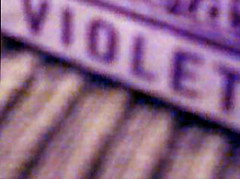Water and Power. Culture Clash. Mark Taper Forum. 9/5/06.
Water and Power poses a problem for me. It's not the same problem that seemed to be posed for Charles McNulty in LA Times Review, which seemed to be a problem with the fact that Culture Clash expected its audiences to intimately know the ins and outs of Los Angeles politics, which is a lot to ask. McNulty says
The bombardment of topical local references, a Culture Clash specialty and a source of easy guffaws, distracts from the narrative flow. From a hot-off-the-press Mel Gibson crack to jabs at elected officials (from Gloria Molina to Gov. Arnold Schwarzenegger) to jokes about convoluted bus routes, Scientology and the narrow aisles of Trader Joe's, the work keeps elbow-nudging its audience with Angeleno hominess.Personally, I would argue that this show never had any intention of creating a self-contained world, and actively works against that. Most of the information you need to understand the local references is provided in the program, so personally I didn't find the fast-paced local references at all disorienting; it seemed rather educational, to me. Culture Clash is joining in a political discussion through a fictionalized narrative, but the external narrative of LA history and politics is just as central to the play.
At times, the politics seem as insular as a county board meeting. It's not simply that the play is intended for an L.A. audience steeped in municipal mayhem. The background of the Garcia brothers' conflicted public consciousness is never adequately fleshed out.
Gilbert makes fun of his own struggle ("No, I've been a Chicano since 1998 — well, I stopped in '95, and after recovery I started again"). But the resonance for the brothers of the Spanish song "De Colores" or the example of Miguel Contreras is assumed rather than fully addressed. You're either on board or you aren't — a sign that the writing hasn't created a self-contained world.
What bothers me is that all the reviews focus on the play being about LA and its politics, which of course it is, but ignore the fact that it's really a play about masculinity. It's the story of two brothers, played by Richard Montoya and Herbert Siguenza, and the kind of men their father raised them to be. It's play about power, power wielded through physical violence and power wielded through back room deal-making. It's a play about male friendship and brotherhood, and as such it completely excludes women. The only female even mentioned in the play is Gloria Molina. In many ways I loved the show and what it's trying to do, but I must ask why it has to do so completely without women? Is the struggle for Chicano and Latino power and community in Los Angeles completely devoid of female participants? Of course not. So why must they represent it as only a story of men and masculinity?
The men in Water and Power are arrayed in a hierarchy of masculinity inversely proportional to their political power, with the queer, white, effeminate fat cat the Fixer (played by Dakin Matthews) weilding his power like a comic supervillian, demasculinizing Richard Montoya's Gilbert Garcia (aka Water), the young Chicano politican, by forcing him to give up his dreams. While political power compromises Gilbert's masculinity, his brother Gabriel (Power) is a cop who can beat his brother up and who takes the law into his own hands. While Water is debased in political dealings, Power has all the guns.
The play itself is a departure from Culture Clash's tradtional style, which tends to be less narrative and more comedic. As such, I feel that it's an extremely well-crafted step toward a more mainstream style (which may or may not be a good thing). Director Lisa Peterson, as the one woman involved in this project (not couting set designer Rachel Hauck who crafted a beautiful, spare, evokative set), worked with Montoya, Siguenza, and Ric Salinas (the third member of Culture Clash, who offered a fascinating portrayal of NorteSur, a wheelchair-bound Cholo poet, friend and assistant to Power) did an excellent job of crafting this into a mostly sensitve representation of LA politics and Chicano brotherhood. Overall, the show was quite powerful, though it had moments of being overly-invested in its poesia. I felt that the play was weakest when it stepped out of the action and offered reflection and interpretation, escpecially in monologues at the beginning and end of the play.
While Water and Power is the story of LA in all its seediness and corruption, with Water and Power as the twin forces that keep it running, it's also a story of men and Chicano masculinity. It's well-done, powerful, and quite entertaining, but isn't it long past time to stop pretending that women don't exist?

1 comments:
I agree. Although you have to understand who the writer is, Richard Montoya, and sometimes I don't think women exist to him either!
Post a Comment